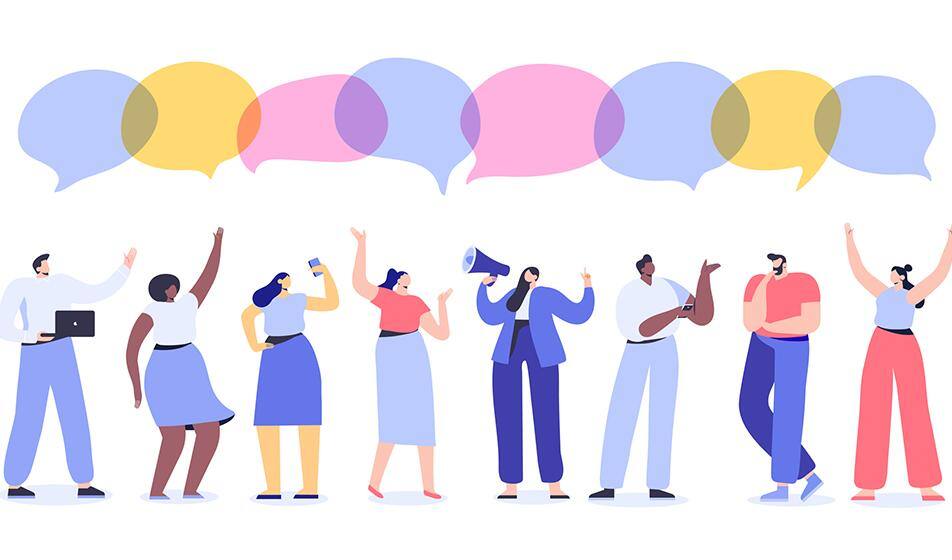Just like people, businesses have a personality – it’s called business culture.An increasing number of business leaders and HR managers are recognising the importance of hiring people who have the personality and business attributes to match the values, beliefs and attitudes upheld in their organisation.
Culture-fit hiring is all about ensuring harmony between the candidate and the values and norms of the business.
And it works both ways - prospective employees are researching for culture fit too. Millennial & Gen Z employees in particular are becoming more mindful about the type of employer they work for.
In this blog, we'll be exploring what exactly cultural fit means and the reasons why it's important for business.
What is cultural fit?
Cultural fit is essentially all about matching people with business culture.
First of all, let’s define what we mean by business culture. A company’s culture can be seen as the values and beliefs of the company’s founders through to the collective force of employees, interactions between management and staff, and the environment in which they work.
It’s a bit like an ecosystem involving a complex network of organisms and components, which includes us (humans), and the technology, systems, premises, tools etc which we need to work.
Just like there are variations in individual’s personalities, business culture varies from company to company. It’s why some people fit into one set of business values and a particular working environment, but not in others.
It seems simple but, it’s really important to understand that cultural-fit hiring doesn’t mean recruiting people who are identical. Cultural fit shouldn’t be used to discriminate against diversity. A great company culture will reflect a diverse workforce.
Get this wrong and cracks will appear. A great company culture can quickly turn toxic and there’s lots of research out there to support the fact that homogenous teams don’t make ground-breaking business. Diverse teams do.
For example, an older person returning to the workplace after caring for their children may not appear to fit into a culture of younger people happy to work late, but they will bring a whole lot of knowledge and life experience to the table that could make a difference to the business. And, just because they aren’t young and can’t socialise after work as much due to family commitments, it doesn’t mean they don’t uphold the same values of the business.
The underlying cultural hallmark of an organisation should be embraced by its employees. If a business has a highly collaborative approach to working, then a person who only works well on their own, may not be the best fit. But, to enrich company culture, it’s important not to build teams with people who all think, look and act the same way.
Employers who get cultural-fit hiring right are those who understand that business needs a mix of people. A company full of clones doesn’t equate to good culture.
Great cultural fit is all based on the fact that an employee who feels connected to the values of the business and clicks naturally with its nuances is more likely to thrive.
Why is cultural fit important?
There is some confusion in the business world over how to hire for cultural fit, but an overwhelming majority of HR leaders agree that hiring for cultural fit is crucial. Here are 5 reasons why:
Staff retention
Given that we spend more than a third of our lifetimes in the workplace, it is important employees feel happy and connected in the place they work. If they don’t, then you have a staff retention problem on your hands, or at the very least you will encounter issues of presenteeism and absenteeism.
Culture fit is the most important aspect of retaining employees. Employees that don’t mesh well with the values of your organisation won’t be satisfied in their jobs and have the potential to create a toxic work environment. They're also more likely to leave.
Employee engagement
When an employee’s beliefs & values are in tune with those of the company they work for, they're more likely to be committed to the company, work hard and go above and beyond. People who are in jobs that match their personality are more confident and competent. This level of employee engagement is critical for business success.
Performance and productivity
Companies with a strong culture and employees who believe in the goals and values of the business are generally more productive. Poor culture is a productivity drain. Read more about how to support your team in our People First Culture Series - Wellbeing.
Cohesion
A team that works together with the same core values functions better and is aligned with the same goals than a team with disjointed priorities. Professional and personal differences are much easier to resolve in teams where employees are committed to similar values.
Communication
Organisations with a strong culture are generally interested in collaborative working processes and open communication. When values are aligned, employees naturally find it easier to communicate.
Company culture is a powerful driver of business success. It is the key to employee engagement, performance and productivity. Employees who identify more with their company are happier, experience greater job satisfaction, are more committed, perform better and are more likely to stay with their organisation. That is why cultural fit is important.
.webp)
Author: Sarah Benstead
Sarah is a Product Marketing Specialist here at Breathe. Always innovating, she loves writing about product releases in an engaging & informative way. When she's not coming up with new ideas, she enjoys long walks with her dog, Clifford.




